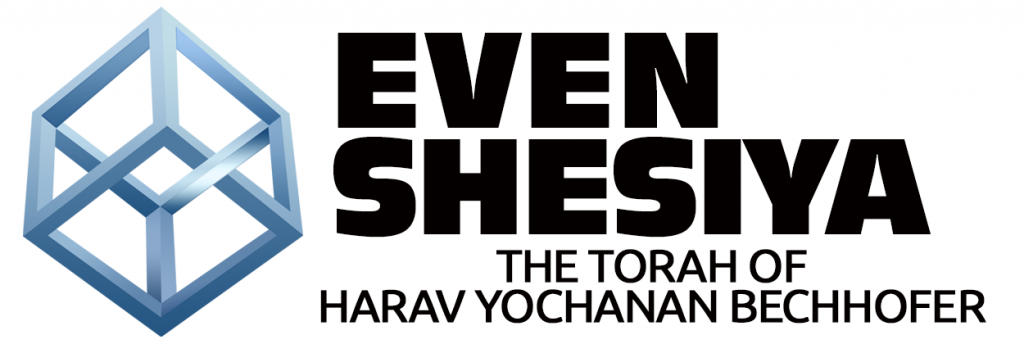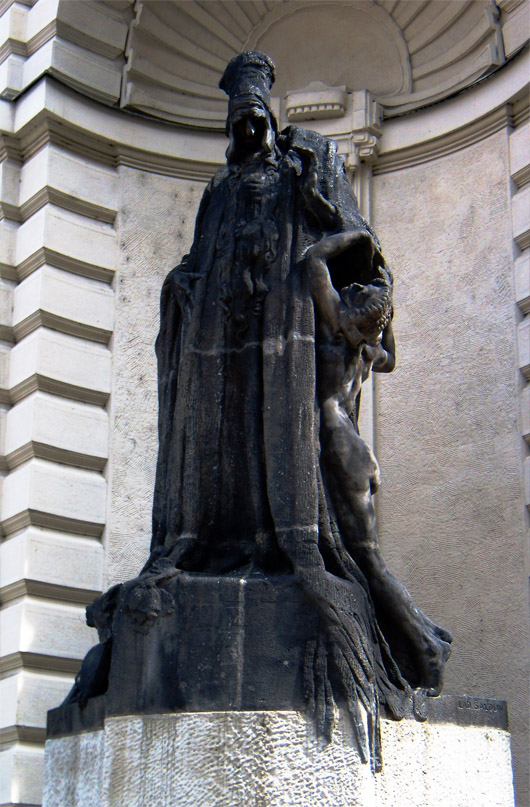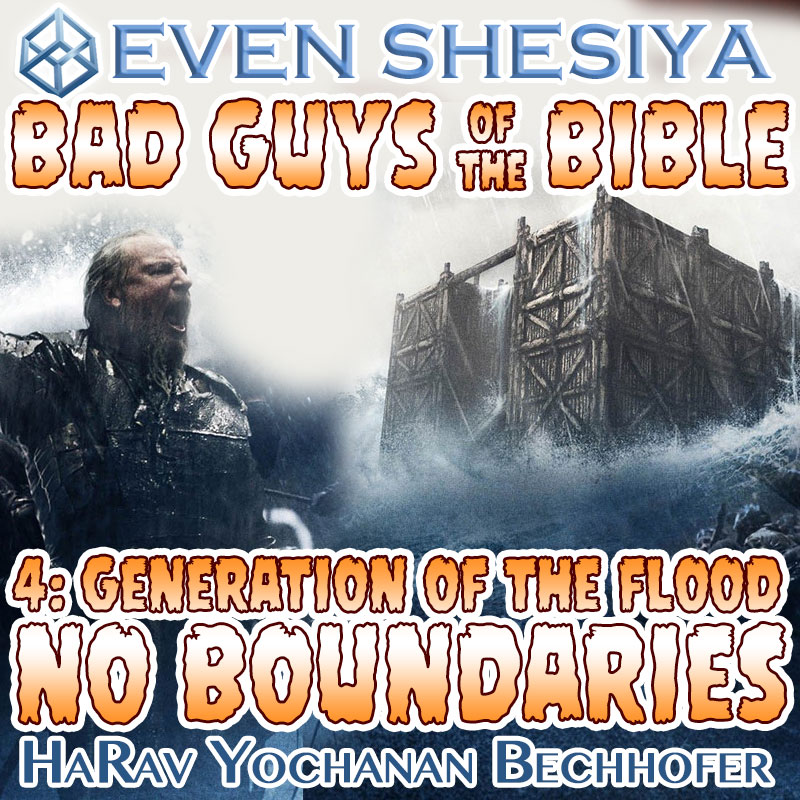Click here to download PDF
Trustworthy to Reward and Punish
Hashem tells Moshe: “I appeared to Avraham Yitzchak and Yaakov with as E-l Sha-dai and my Name Yud-Heh-Vav-Heh was not displayed to them”. Rashi explains that means: I am trustworthy to bestow good reward to those who follow in my commandments and I am now sending you to uphold the promise that I made to the forefathers. Rashi goes on to explain that this is always the way to understand this Name of Hashem: “I am trustworthy and you can trust me to pay you “good reward” for the Mitzvos and I will surely punish you for your wrongdoings and now I’m going to fulfill the promise I made the forefathers”. Rashi further explains that Hashem was saying “not to say that the Avos were not aware that the Name Yud-Heh-Vav-Heh (because we do find it throughout Sefer Bereishis and that’s how the Avos addressed Hashem) but they didn’t see that name in action. I made use the Name E-l She-dai when making the promises because I did not fulfill those promises in their lifetimes”
The Difficulties
There are many difficulties here. The most obvious question is can we Chas v’chalilah suspect Hashem of not fulfilling his promises? If you can’t trust Hashem who can you trust? What does it mean He has a “special Name” which refers to his fulfilling his promises? Any decent upright person has to fulfill his promises and commitments, no matter what his name is! Thirdly, if, Chas vchalilah, there is a situation where there is a concern of someone not honoring his commitment how would it help by adding another name? Can a dishonest man supplement his dishonesty by simply calling himself ‘honest’? What does the term “Good Reward” mean? Isn’t all reward “Good”? What is so great about being guaranteed to be punished?
E-l She-Dai
The greatest problem is: Anyone who has learnt sefer Bereishis with Rashi will see that every time the Name E-l She-dai is used Rashi explains the Name to mean “E-l” – the power, She-dai – that is enough meaning enough power to deliver and make good on the promises! This Divine Name actually means “the power and wherewithal to fulfill and deliver” – the opposite of what is being implied in Rashi in this week’s parsha!
E-l She-Dai VS Yud-Heh-Vav-Heh
Sefer Shemos begins the revelation of revealed Miracles. We have not seen any revealed miracles in the plain text of the Chumash throughout sefer Bereishis. In Shemos the plain text shows that the Miracles here were witnessed by Jew and Gentile alike. Hashem says that He’s doing all these Miracles that His “Name should be spoken throughout the Earth”. With the revelation of Hashem’s Name Yud-Heh-Vav-Heh reality is changing, including breaking the boundaries of nature. Where do the boundaries of nature (natural laws) come from? The Name E-l She-dai! The Gemara in Chagiga says that at the time of creation reality was expanding in infinite proportions until Hashem ‘yelled’ “DAI”- Enough! The Gemara explains that the Name She-Dai is an acronym for “She’omar l’olamo Dai” – He who told His world ENOUGH! The Name E-l She-Dai is where the programing for a natural world, with all its laws and boundaries comes from. With the Revelation of the Name Yud-Heh-Vav-Heh comes the programing for the super natural that is unlimited and unconstrained! The Avos were aware of Hashem’s Great Name Yud-Heh-Vav-Heh but they didn’t see it ‘demonstrated’. The Name Yud-Heh-Vav-Heh represents the infinite essence of all Divine Revelations and the infinite essence of the Torah which is the basis for Hashem’s Revelations. The Torah reveals His Will, Wisdom, and Law. It’s from the Torah that the entirety of reality was fashioned.
Enough
“Enough” means there is a need to be filled, and once that need is filled anything more would be an ‘overflow’ and hence a waste! “Enough” means filling a measure, apropos for a world of quantities, and if the need is filled nothing further is required, and nothing more can be contained. When doing business with your fellow man, the most you can hope for is that he can meet the demand. Even then, it’s all conditional to whatever the terms of the business deal were. If the understandings are violated, the deal is off! Meaning to say: any deal/commitment is limited as far as the quantities involved and subject to certain understandings and conditions, if they are violated, the deal is null and void! A promise may not ‘fulfilled’ not because the one making the promise lied, but simply because it’s no longer needed or no longer deserved. In Sefer Bereishis Hashem makes the promises with the name E-l She-Dai simply to say “I got what it takes, I can deliver”. Hashem was making the most real promises that we could ever expect within physical reality, “measure for measure” – quid pro quo, subject to the conditions and understandings. The name of Yud-Heh-Vav-Heh is beyond “being subject to terms and conditions”. It is not within the framework of ‘measures’. It is infinite!
“Good” vs “Good Enough”
With this we could resolve a problem that should bother any thinking person. The Ramchal teaches us that we have to work and do Mitzvos to deserve our ‘Olam HaBah’ and we get paid ‘measure for measure’. It never really is literally ‘measure for measure’! A Mitzvah takes us a quantified amount of effort, self-control, money and time to perform, and yet we get infinite reward for it! Herein lays the answer! We’re not ‘doing business’ with a finite power. We are working with He who is of infinite power and eternal, and His Torah is infinite and eternal! Therefore the ‘earned response’ will be infinite because that’s the power that we’re dealing with. Even though we did a quantifiable good deed, since we’re doing business with He Who is infinite and eternal, the response that we is infinite and eternal! This is what “Good Reward” means! Hashem could have given us reward that is simply “good enough” where we would get a fair compensation for our time and effort as it is worth in the ‘job market’ in this world. But we are dealing with Him on the basis of the Name Yud-Heh-Vav-Heh, which is represented by His Torah, and therefore we are guaranteed “GOOD REWARD” – meaning reward that is absolutely and INFINETELY GOOD.
No pain no Gain
Here is the catch. It would be a waste to get infinite reward and not have the capacity to contain and appreciate it. We have to purify our essence to be able to enjoy the never ending ‘Ziv HaShechina’. The problem is that’s our sins corrupt and taint us and make us unworthy of being vessels to that can somehow appreciate the infinite pleasure. What does Hashem do? He doesn’t say let your aveiros cancel out your Mitzvos and you’ll get neither reward nor punishment. That would be a terrible loss! Because He wants to give us infinite goodness, for that reason, he makes sure to ‘punish us’ for what we do wrong in order to ‘burn out’ the contamination in us. This insures that we will be in a position to receive the infinite goodness for whatever we’ve done right. This same Name which means a guarantee to get GOOD REWARD – meaning actually follows through on this by guaranteeing punishment. Hashem says: “if you fall from grace and you’re no longer deserving I will not walk away from the deal rather I will clean you up and punish you for what you’ve done wrong in order to restore your Purity and worthiness, thus guaranteeing you’ll receive “GOOD REWARD”, against all odds, including your own unworthiness!
Trust
When is ‘trust’ required? If the conditions are clear and you’re working with an honest person everything is ‘understood’, and ‘trust’ doesn’t come into play. ‘Trust’ comes into play in order to proceed despite some uncertainties. The ‘uncertainty’ in reward is US. We may lose our worthiness, we may do bad things that offset what we’ve done right. Hashem says: “You can trust me to deliver infinite reward despite the fact that you have fallen and are no longer worthy”. For our own benefit, Hashem guarantees to never overlook anything done wrong, because it would leave us and the world corrupted and incapable of receiving infinite reward. That’s where ‘trust’ comes in. To trust that you will get Eternal reward for whatever you’ve done right in your lifetime, no matter how much you have failed and Fallen since that good deed
Eternal Nation
This is the secret of the eternality of the Jewish people. This is our response to the Gentiles. As bad as we are, as many sins as we did, Hashem will never abandon us. He will never allow us to be annihilated and will never exchange us for another Nation. The bond between us and Hashem is and of infinite power. He will make sure to punish us in for the sake of cleansing us, to keep us worthy and able to appreciate the goodness that He wants to give us. Hashem wanted our relationship with Him to be built on his infinite power that is eternal and unconditional. When he came to fulfill those promises He made to the Avos, he didn’t deliver in ‘measure’ with the Name E-l She-Dai, he delivered with His infinite power that’s why when did Jewish people were redeemed they were redeemed “L’Chairus Olam” making us his people eternally and unconditionally, never to be replaced!
Good Shabbos.











